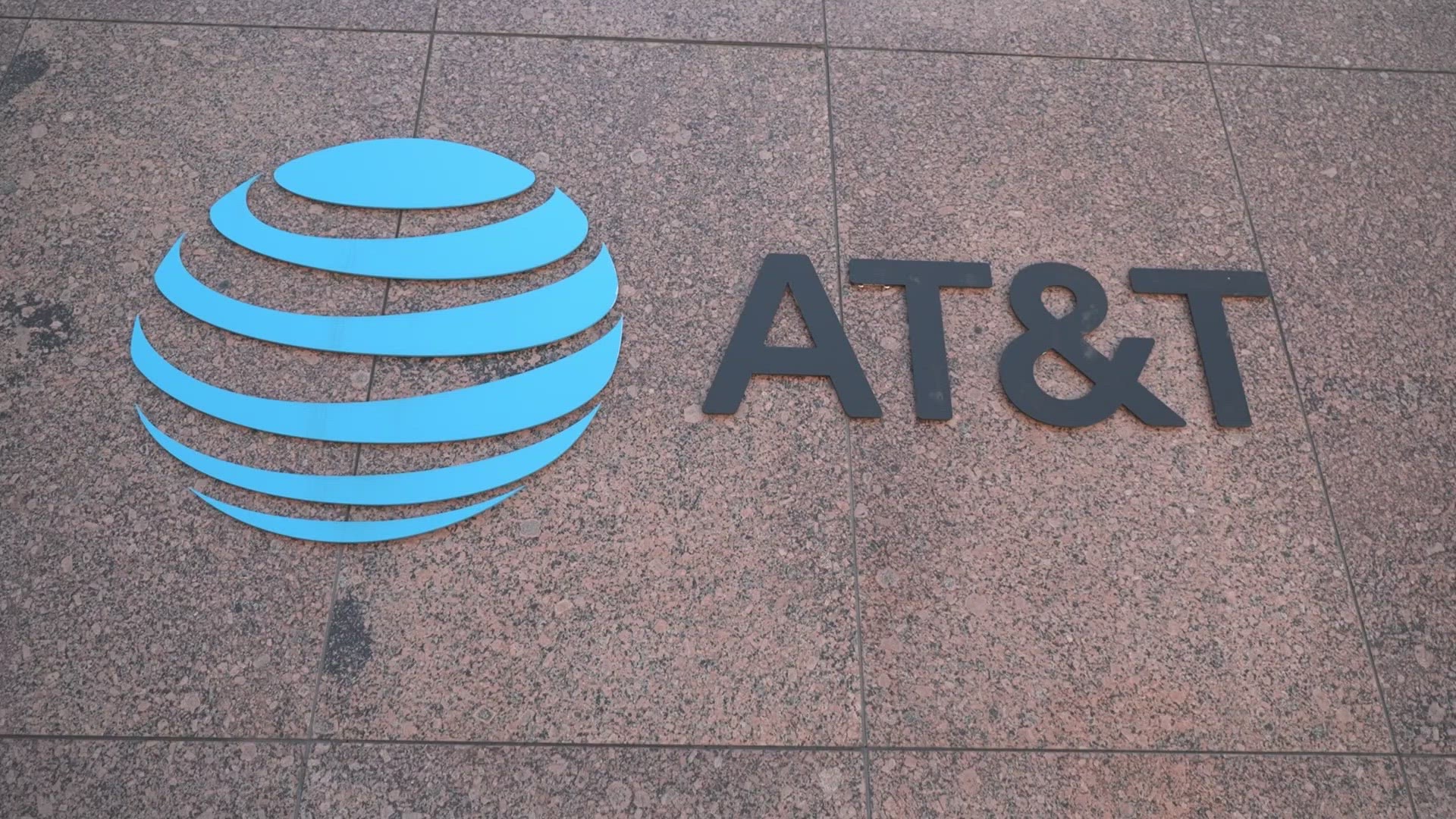DALLAS — AT&T, a company ranked high as one of the largest companies in the United States, is facing a major low.
AT&T shares took a dive after a Wall Street Journal (WSJ) investigation was published earlier this month. WSJ said thousands of cables stretched across the country are covered in toxic lead, and they belong to telecom giants like AT&T and Verizon.
There are financial and health aspects of this story.
Financially, AT&T hasn’t seen stocks this low since 30 years ago in 1993.
Bill Dendy, a financial expert with Alicorn Investment Management, said he isn’t surprised by the panic. Verizon and Frontier stocks fell too.
“A lot of people in our area are concerned about how AT&T is performing because a lot of people currently work or have worked in the past for AT&T,” Dendy said. “Often times, people go to much one way or the other.”
Dendy is confident that these telecommunications giants will recover.
“As far as AT&T and Verizon, it’s bottom line. It won’t be enough to take the companies down. It’s just one more thing that has caused concern among investors," he said.
While the shares plummeted quickly, the health impact of lead exposure may take longer to notice.
Dr. Marcial Oquendo, a pediatrician with Guadalupe Medical Center in Dallas, said, “The problems of lead toxicity can have a long-lasting impact, so we need to make sure that our kids are not exposed to too much lead.”
He said people, especially children, with longtime toxic lead exposure are most at risk.
“Typically, they will have learning disabilities compared to their peers who do not have that toxicity, or were exposed to much lead," said Dr. Oquendo.
Dr. Oquendo said there are traces of lead all around us that our bodies can shed overtime, but when it’s too much and constant, it can have long-term health risks.
“It can affect a lot of other structures, organs, and it does increase our risk for cancer, long-term," he said.
WFAA reached out to AT&T, who referred us to USTelecom, an association that represents telecommunications companies.
A spokesperson with USTelecom said, “We have not seen, nor have regulators identified, evidence that legacy lead-sheathed telecom cables are a leading cause of lead exposure, or the cause of a public health issue.“
In addition, USTelecom said, “Many considerations go into determining whether legacy lead-sheathed telecom cables should be removed or should be left in place, including those regarding the safety of workers who must handle the cables, potential impacts on the environment, the age and composition of the cables, their geographic location, and customer needs as well as the needs of the business and infrastructure demands. The U.S. telecommunications industry stands ready to engage constructively on this issue.”
AT&T has since issued a statement on its website in response to the WSJ report.
Part of the statement reads, "It’s important to note that The Journal’s reporting conflicts not only with what independent experts and long-standing science have stated about the safety of lead-clad telecom cables but also our own testing, which we have made available to the public and shared with The Journal."
NOTE: The following video was filmed on July 18.

